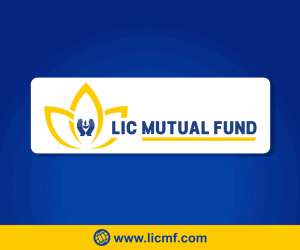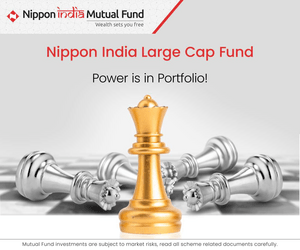Common Investing Mistakes Investors Must Avoid

Investing is not just about investing your saved up money and then forgetting about it. It is a means of generating a second source of income. Just the way you work hard to generate your primary income, at the initial stage even investing will require effort on your part. Investing has multifarious purpose. Some of it is done to provide your retirement corpus, some to save taxes, some to fulfill financial goals like higher education and building assets. Just the way the investments are utilized in a dynamic way, the vigilance done on them also has to be carried out differently. If an investment has been done for a short term purpose, the treatment of the investment during adversity will be slightly different from those done for long term purpose.
Investments are matters hardly to be trifled with. While the aim of investments is not to scare you with jargon or risks, you should not be so secure in your investments that it makes you complacent. Investments must be managed actively by investors or left to the care of financial advisers and experts who will actively manage it on behalf of the investors. Along with investments there are certain common errors that investors who are both beginners and seasoned make. There are common and often ignored but it leaves a mark of adversity. Let us see a few common investment mistakes that investors make.
The Right Time Syndrome
The world of investing suffers from the misconception that investing is only for rich. Hence, a lot of earning individuals shy away from investments or delay, waiting to have more financial power before they kick start investments. They wait for the “right time” and “right amount” before they start investment. In the process they lose something much more precious than insufficient funds and that is time value of money. Small amounts can compound in to big sums of money if invested for a long period of time. Investors also make the mistake of thinking they can always invest lump sum amounts and make up for the loss of time. Unfortunately the science of compounding does not work in that manner. Given below illustrates that an investment of र 2,000 monthly for 40 years produces higher returns than a lump sum investment of र 20,000 for only 10 years.

Hence, there is no time like the present to a make an investment. Investments can be started with as less as र 500 per month. Hence, start now because you are living in the right time.
Tax Investments for the Purpose for Tax Savings
Tax savings is one of the primary concerns for any earning individual. However, in this race to save taxes we often forget that tax saving investments could also act as goal fulfilling investments in the long term. Just before the financial year ends there is a sudden rush for investment in the tax saving products. This is a mistake that investors make; failing to kick start tax planning since the beginning of the financial year.
Instead of following the herd and making some sort of hasty investment decisions, make a decision that will also align with your long term investment plan. For example, if you are planning to start retirement planning you can align both investments purposes and open a National Pension Scheme (NPS) account where the Government has declared an additional tax deduction of र 50,000 under section 80 CCD of the Income Tax Act 1961. Hence, your retirement planning and tax savings are taken care of. There are various investment instruments like Mutual Fund ELSS Schemes, Public Provident Fund, Life insurance schemes that allows you to save tax up to र150,000 per annum, excluding the NPS investments. As an investor while you can invest in these schemes for gaining tax benefit, you may remain invested in these for long period of time and align with your Retirement Planning or other long term financial goals.
Spending and Debt Traps
There is no doubt today’s earning individuals have more financial power than the generation before. However, there are also more avenues to spend making the even the well off fall in debt traps. Earning individuals, when they get the first taste of money usually spend without a budget, spending much faster than they can earn back. When this situation continues, they require additional financial support and individuals often resort to personal loans and credit card. The concept of loan is based on borrowing from your future income. If you are borrowing a certain sum of money today assuming your future income will be higher than what it is today and this assumption of increments fails, then you are trapped. What if you do not get the hike you expected? What if you lost your job or are planning to change jobs? Can you borrow large sums on assumptions that are not founded in any form of security?
Credit card interest payments could be as high 36 - 48% and additional charges and penalties are levied if you fail to pay the interest or the minimum amount to be paid. Hence, there is hardly any way to getting out of debt trap once you are deep into it. You will be so busy making yourself debt free that you may not have finances left to save or invest. Hence, debt traps are fatal for a financial future and unfortunately this also happens to be a common mistake that investor and earning individuals make. There is no simpler way to overcome it other than spend within your means and make savings a priority and not an option.
Being Uninsured and Underinsured
The need for life insurance is stressed upon not only because it makes a good investment and helps in savings taxes but also it is crucial for your protection and your immediate dependents. Health insurance is another form of insurance that should be a common instrument of investment due to the rampant increase in illness and price of healthcare facilities. Individuals often hurriedly get insurance done without checking the coverage, to save taxes. They often fall prey to the propaganda of insurance agents who sell insurance products for their own gains. These investment mistakes could prove fatal.
Buy a term life insurance which provides coverage of at least till age 70 - 75 years and the premium is within your financial means. The term plan coverage could be increased as your income increases. Health insurance is often invested in during the rush to save taxes and investors could invest in substandard investment products one that requires no medical tests and provides bare minimum coverage. In a rush to get invested investors are underinsured and misinsured. Have time in your hand and know what you getting insured in and insured for.
Differentiating Between Facts and Myths
Investing is one of those areas where there is a lack of awareness. Investors often take decisions based on misinformation or other people’s ideas of investing and their experiences. This is a mistake because every investor has their unique investment needs and must invest according to that.
As investors you must learn to sift myths from facts and not get carried away by other people’s opinions. Information on investing products is available in details in the respective Insurance or Asset Manage Company’s websites and there are many websites that publish mutual funds research and analysis on investment products. Hence, rely on objective sources of information. If you are taking advice take it from people who matter and who are directly affected by your investment decisions like your parent or your spouse. It is best to look for professional advice from financial planners and advisers who have knowledge and experience. Hence, investments can be made a fruitful process if done the right knowledge.
Conclusion
Investment is a rigorous process that requires the investors to take active part. It is your investment; it is natural that your interest will be piqued. Maintain the interest through the investing cycle. Avoid the common mistakes which often cost heavily to the investors. Once you seal off these small pockets of mistakes your investments become air tight and which has no scope for losses or misinvestment. We all learn from mistakes and it is time you learnt from mistakes that you could possibly make but are better of avoiding.
Queries
-
What is the benefit of mutual fund STP
Aug 29, 2019
-
How much to invest to meet target amount of Rs 2 Crores
Aug 26, 2019
-
Can I achieve my financial goals with my current mutual fund investments
Aug 24, 2019
-
Can you tell me return of various indices
Aug 19, 2019
-
What would be the post tax return on different investments
Aug 18, 2019
-
Which Principal Mutual Fund scheme will be suitable for my retirement corpus
Aug 16, 2019
-
What is the minimum holding period for availing NCD interest
Aug 4, 2019
Top Performing Mutual Funds
Recommended Reading
Fund News
-
Edelweiss Mutual Fund launches Edelweiss BSE Internet Economy Index Fund
Apr 25, 2025 by Advisorkhoj Team
-
Bajaj Finserv Mutual Fund launches Bajaj Finserv Nifty 50 Index Fund
Apr 25, 2025 by Advisorkhoj Team
-
SBI Mutual Fund launches SBI Income Plus Arbitrage Active FOF
Apr 23, 2025 by Advisorkhoj Team
-
Motilal Oswal Mutual Fund launches Motilal Oswal Infrastructure Fund
Apr 23, 2025 by Advisorkhoj Team
-
Groww Mutual Fund launches Groww Gilt Fund
Apr 23, 2025 by Advisorkhoj Team













